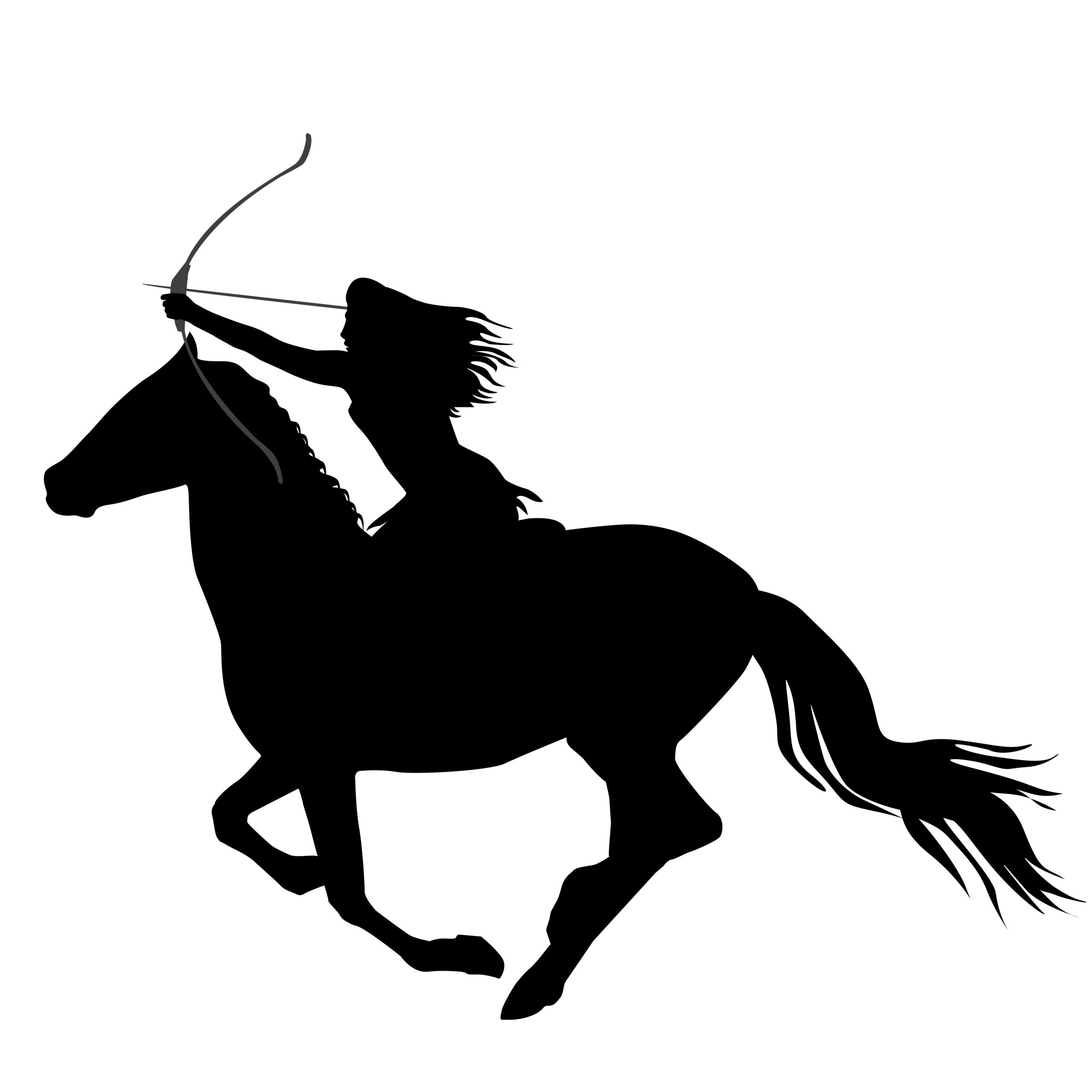I once saw a woman have a melt-down on her horse. The horse nipped her. While this was unacceptable behaviour on the part of the horse it was no surprise it happened. That horse had been trying to tell the woman it was uncomfortable with the situation but she just was’t listening. So while the nip was inappropriate, the woman’s reaction was even more so. To put it mildly she was overcome by uncontrollable rage. She yelled at the horse and repeatedly punched it in the head until she was all punched out. Not only did she terrify her own horse, she frightened the other three or four horses (and their handlers) who witnessed this.
There are definitely times when we are going to have to use physical force to reprimand a horse, usually when the horse enters our personal space uninvited, and especially if it jeopardizes our personal safety. When this happens we should respond with an intensity of physicality commensurate with that displayed by the horse; however, we should never evoke strong emotion, especially anger. Anger almost always makes it worse. At best you will loose your horses trust and respect, at worst it could lead to escalation. I have a horse that just won’t back down and I have no desire to get into a fist fight with anything that is bigger, moves faster, and hits harder than me. I have found that if I can keep my energy neutral and firmly stand my ground in a non-reactive way it quickly de-energizes the situation.
It’s like that with people too. My personal experience has been that anger begets anger. When that happens the situation quickly escalates out of control and things happen that are later regretted. Conversely, if one person stays calm and reasonable it often serves to defuse the other person’s anger.
Having said this, we all get angry. It is a human emotion and we have it for a reason. Repressing anger is not the answer, as repressed anger eventually manifests, either as resentment or as a total melt down. We need to deal with anger when it happens. It might be helpful to remember that:
Anger is not a call to action. It is cause for reflection.
It means we need to think about what is happening and maybe come up with another plan, or take a time out and deal with the issue another later. The sooner we can do this the better. If we start feeling irritated or frustrated with the horse it is probably a good idea to take a break and think things through. Anger almost always is rooted in fear. Our time might be better spent discovering what we are afraid of and coming up with positive strategies to overcome our fear.
I believe that, in our relationship with the horse, it is up to us to be the grown up. We need to help the horse regulate its emotions by regulating our own. Anger is never the answer. Self-regulation always is.

